On the Science of Wellbeing

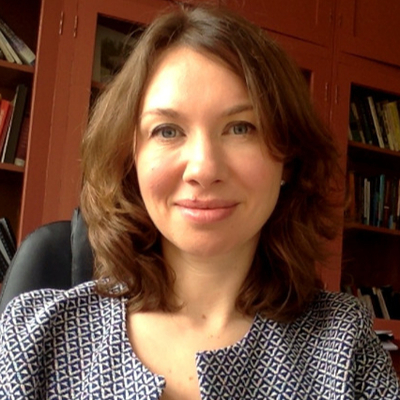
'The sciences of wellbeing such as positive psychology and happiness economics, rose in the last thirty years on the coattails of the waning influence of traditional economics, the rise of data-driven self-help, and the enthusiasm about evidence-based policy. These trends have inevitably shaped the field, sometimes for better, sometimes for worse.'
'There is nothing strange or unusual about sciences that mix their aspirations. It happens all the time. Environmental, policy, and medical sciences do that too. We all need to get over our frozen preconceptions about what science is. Some of us inherited these preconceptions from the so-called canon of philosophy of science, namely the mid-century debates on demarcation of science from pseudoscience that always took physics as a model'
'Representing wellbeing as straightforwardly measurable, quantifiable, and attributable to distinct causes buys this field attention of policymakers, but at what price? Not only do we lose out on the richness of wellbeing but... we also saddle wellbeing science with an undemocratic and simplistic ‘social planner’ ideology...'

Anna Alexandrova is working in philosophy of science, especially of economics and psychology. She is particularly interested in the role and status of formal models in special sciences and in measurement of happiness and well-being. Here she discusses the relevance of philosophy of science, the science of wellbeing, Hugh Lecey's concept of 'neutrality' and whether it's possible in a science of wellbeing, issues around the need to study experiences, issues regarding the question as to whether wellbeing can be measured, about sciences with mixed aspirations, value aptness, construct pluralism, wellbeing variantism, contextualism, master-theories, the mechanics of mid-level theorising, objectivity, arguments against wellbeing science, and psychometrics as theory avoidance.
3:16: What made you become a philosopher?
Anna Alexandrova: My story is one of an immigrant and hence it is a story of insecurity, humiliation in embassies, and doing whatever is necessary to get a visa and to keep it. I came to academic philosophy essentially in order to leave Russia of the 1990s. Going to graduate school was a way of securing a legal and viable way to live in the West. But in the process philosophy grew on me. Of course, there has to be more to it than this purely practical explanation. Big ideas have always been part of my Soviet childhood and with collapse of USSR, it was hard to ignore the ideological circus around me. It was a time of intense uncertainty about how to live, how to run a country, how to be a woman, and so on. A vivid first-hand experience of this uncertainty, I like to think, is the reason I am a philosopher of social science. The fundamental question that I asked back then and never stopped asking is who is entitled to claim social expertise.
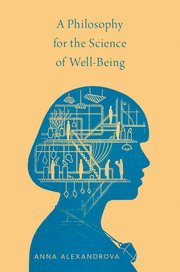
3:16: You’re a philosopher of science. Why do you think we should neither insist philosophy of science is irrelevant nor insist that it is always relevant? You’ve used an area of science, the ‘science of wellbeing’, as an area to illustrate your ideas about this. So firstly, what is a philosophy of wellbeing? Why do you think that understanding the history of the science of wellbeing is useful – and can you sketch for us what this history looks like and its landmark moments up to now and how it ended up being institutionalized as it undoubtedly has been?
AA: I became interested in the sciences of wellbeing because I thought I could fix it with the right philosophy. It’s such an irresistible reaction for a philosopher – if a field makes obvious assumptions that are in our turf, namely what is good life, it is hard to suppress the urge to teach it better. Over time I grew more pessimistic of this ambition – who are philosophers to tell scientists that a given theory of wellbeing is correct and another is false? At most we can offer a library of relevant concepts and the costs and benefits of rival theories. I also started thinking more historically – a field comes to prominence for a mix of social and epistemic reasons and the key to its success is not to get bogged down with fundamentals and instead to plough on and to make a name for itself. That’s ‘normal science’ as Kuhn taught.
The sciences of wellbeing such as positive psychology and happiness economics, rose in the last thirty years on the coattails of the waning influence of traditional economics, the rise of data-driven self-help, and the enthusiasm about evidence-based policy. These trends have inevitably shaped the field, sometimes for better, sometimes for worse. Sometimes the sciences of wellbeing are humanistic, sometimes they are technocratic. My job as a philosopher of this science is neither to fix it by philosophy, nor to merely describe its practice. Rather my job is to participate in making this field more responsible, morally and methodologically, given the social and political environment in which it operates. So I see my work as critical but sympathetic engagement with the current attempts to study wellbeing.
3:16: Can there be what Hugh Lacey calls ‘neutrality’ if values are at the heart of studies of wellbeing and doesn’t that mean a core element of naturalism is impossible to achieve in this domain? On the other hand, if well-being claims are based on generalisable causal laws, doesn’t that reject any idea that wellbeing is personal and idiosyncratic and thus makes interpretist exceptionalism also impossible?
AA: What Lacey calls neutrality – the requirement that scientific concepts neither imply, nor are implied by normative claims – is hopeless for social, environmental, and medical sciences (think of health, livability, sustainability, peace and so on). In these fields concepts are ‘thick’ with value judgments. Some think it’s possible to purge this thickness from science – for example, by treating ‘wellbeing’ as a technical term with precise and stable definition involving no vagueness and no normativity. But human concepts need vagueness and normativity to be important and meaningful to people! Plus all these fields dealing with thick concepts are still able to explore and test causal generalisations as well as confirm singular causal or interpretive claims. So we need to revise our commitments about the kinds of sciences there are. The labels of naturalism, interpretivism etc are old fashioned and unhelpful.
3:16: Many experts assume that well being requires studying experiences? What are the philosophical issues arising from this and do they lead you to agree or disagree with these experts?
AA: It is hard to imagine any study of wellbeing without close attention to our experience (emotions, perceptions, attitudes, moods, and so on). But that’s true of all psychology, not just that concerned with wellbeing. So those who believe experience cannot be studied scientifically will be general skeptics. I am not such a skeptic, but I do worry that contemporary psychology prioritizes the methods of surveys and experimental elicitation. They are controllable and convenient, but far too narrow. If you want to understand people’s experience, you need to talk to people on equal terms (not treat them as subjects) and to prepare to adjust your concepts on that basis. So I wish the value of anthropological methods such as ethnography was better appreciated in the more ‘scientific’ sides of psychology.
3:16: What are the fundamental philosophical assumptions that lie beneath the assumption that wellbeing can be measured? It seems to be very much part of a naturalistic approach. When you consider them, are you skeptical and where does that eave you with regard to naturalistic approaches in regards to studying well being?
AA: All depends on what you think measurement is. Such a definition is not written in the sky, but made up by humans. If measurement is just detection of phenomena and a rough comparison of their levels, this requires only very minimal formalization and no quantification. On that definition measurement happens in everyday life (when I touch my child’s forehead to see how warm they are) and it happens in qualitative research (when an ethnographer identifies a norm which is more prevalent in one community than in another). Measurement of wellbeing in that sense is uncontroversial – all it requires is the existence of observable indicators that allow comparison within certain ranges. We all measure wellbeing in this sense when we catch up with friends and chat about how our lives are going.
But if you have a more demanding definition of measurement – assignation of numerical scales with specific mathematical properties – then the assumptions are far harder to satisfy. The most controversial assumptions in today’s survey methods are two. First, the linearity of Lickert scales. Suppose you ask people how satisfied they are with their lives on a scale of 0 to 7; is the distance between 3 and 4 the same as the distance between 5 and 6?. The second one is comparability of ratings across individuals and time (the latter is a phenomenon known as response shift). Is my 5 the same as your 5, and the same as my 5 a year ago? I do not believe the current scales are valid in these more demanding setups. This is a huge worry because scientists want to do a lot of ambitious work with the numbers that surveys yield. My impression is that they are sometimes driving on an empty tank and hope that no one notices.
Still I am not a skeptic of measurement – general wellbeing is probably impossible to measure, but specific aspects of wellbeing in specific circumstances are a more realistic target for measurement.
3:16: The fifth pillar of a Kuhnian ‘normal science’ is that it has hopes and aspirations for applications as policy – and so you conclude that wellbeing science has three elements that seem well suited to naturalist approaches (generalisability, measurement, policy aspirations) and three that are better suited to an exceptional, interpretivist approach (value ladeness, focus on lived experience and policy hopes). Doesn’t this mean that it’s a science that inevitably will lead to a collision (and not a unification or conciliation or accommodation) between irresolvable incompatible elements based on the Humean observation that you can’t get oughts from is’s, or vice versa?
AA: No, there is nothing strange or unusual about sciences that mix their aspirations. It happens all the time. Environmental, policy, and medical sciences do that too. We all need to get over our frozen preconceptions about what science is. Some of us inherited these preconceptions from the so-called canon of philosophy of science, namely the mid-century debates on demarcation of science from pseudoscience that always took physics as a model. Scientists themselves inherit these preconceptions from their own tropes about their method (that they collect facts, that they are dispassionate, etc). Modern history and philosophy of science has shown an enormous diversity of scientific cultures and the sciences of wellbeing is just another chapter in that story.
3:16: Why do you think your question of Value Aptness ie: How can the science of wellbeing properly produce knowledge that is genuinely about well being? - lead you tho think that philosophers at the moment are not thinking about the right things needed to answer this question?
AA: Any action towards wellbeing or any study of it requires a definition, no matter how provisional. In the practical contexts of policy or research, such a definition needs to be appropriate to the goals of the project – epistemically accessible, reasonably simple, in other words fit for purpose. If you are interested in the wellbeing of families with special needs children, you will zero in on the key challenges these families face – navigating welfare provisions, dealing with ablism, balancing needs of different family members – and look for observable indicators of these families’ ability to cope. This is what it means to have a responsible definition of wellbeing for this purpose. Philosophers of wellbeing in the analytic tradition think very differently. They begin with the concept of prudential good and build a maximally general and maximally plausible theory of this good.
For example, many colleagues end up with an idealized subjectivist account pioneered by Peter Railton, or some souped up version of hedonism, or objective list theory with clever subjective requirement, and so on. I call these the Big Three (but I don’t care if I am wrong about that, maybe in fact there are Big Four or Big Five). In any case these theories are pretty much unusable in practice. They are far too abstract and they lack, what in philosophy of science we call, ‘bridge principles’. Philosophers do not think it’s their job to translate these theories into practical constructs or measures because such a translation is too complicated, too empirical, and our big journals won’t publish such work. Fine, but then don’t complain when the fruits of your labor aren’t taken into account by practitioners and don’t accuse them of being theoretically unsophisticated (they often are, but it’s your job to get out of your armchairs and do something about that). The whole situation strikes me as dysfunctional, but thankfully it’s changing. Colleagues in applied ethics and political theory are far more comfortable building theories that help practitioners satisfy Value Aptness.

3:16: What’s construct pluralism and what does it tell us about well being and its science and is it a reason why philosophers should stop looking for a single correct theory of wellbeing?
AA: Construct pluralism is just the consequences of Value Aptness. To be apt a theory of wellbeing needs to be adjusted to the context of its use and because there are many such contexts, we shall need many constructs. For me construct pluralism is both an empirical fact and a desirable goal. I think when you look at all the fields in which people use a concept of wellbeing, you see diversity. Wouldn’t it be a shame if development economists defined wellbeing in the same way as developmental psychologists? Thankfully they don’t and I get nervous when I hear people advocate a single definition of wellbeing for all purposes.
3:16: So what’s ‘ WellBeing Variantism’?
AA: It is a term I use for the view that the content of wellbeing ascriptions is not stable across contexts and also that no single substantive theory (sorry, advocates of any of the Big Three) is successful across the board. The biggest challenge to my variantism is to say what holds together the family of wellbeing concepts and wellbeing theories. Isn’t there a master theory of wellbeing that guides the application of one theory in one context and another in another? If so, perhaps the proper goal of philosophers is to work out the features of this master theory. I admit the existence of such a master theory is a theoretical possibility and I do like some of the attempts to combine subjective and objective theories of wellbeing – for example, Valerie Tiberius’s or Simon Keller’s hybrid accounts. But the clash between variantism and invariantism no longer preoccupies me. It was good to have that contrast articulated, but the choice between these two poles comes down with one’s philosophical sensibility.
3:16: What’s contextualism and does it help you establish that several different concepts are appropriately referred to as well-being or do you need ‘construct pluralism’ added to the mix to do that, the idea that we don’t have ‘vending machine’ theories but just models, toolboxes, instruments that are weaker than theories but more useful?
AA: Contextualism is a view about semantics of wellbeing claims – that they are indexed to context – some people think knowledge claims are like that too. Construct pluralism – the fact that sciences do not all share a construct of wellbeing – is a consequence of contextualism, though you don’t need to buy into contextualism to accept it. I use Nancy Cartwright’s metaphor of a vending machine to dampen philosophers’ faith that, if you are very clever and hardworking, you will eventually come up with a maximally general theory of wellbeing that, provided you have enough information, will deductively imply the correct measure of wellbeing for each purpose. My vision is more bottom-up – life demands conceptions of wellbeing and we opportunistically deploy whatever theoretical tools we have at hand to construct those (I call them mid-level theories of wellbeing).
3:16: If there’s no master-theory, how do scientists to know if the construct they’re using for wellbeing – things like hedonism, subjectivism, eudaimonism for example - is the right one? How does the notion of mid-way theories help here and how does this jigsaw puzzle of high theories, mid-level theories, constructs and measurements hang together in your approach?
AA: Scientists and practitioners do not need the blessing of the Big Three to know they selected the right measure of wellbeing. It’s not like scientists ever check whether their theories of X comport with philosophers’ best understanding of X. Nor is it a reasonable demand – what makes for a good philosophical theory and what makes for a well justified scientific construct are two different things. For scientists it is enough to understand the needs and challenges of their target population and to devise a construct that satisfies their measurement and inference needs. This demands engagement with existing theories of wellbeing in philosophy, but, as I said, there aren’t theories to just take off the shelf.
3:16: So how can these mid-level theories be built?
AA: This idea is not in the 2017 book, but I increasingly think that responsible theory development needs to be participatory. All our nice philosophical bells and whistles need to be combined with lived experience of folks whose wellbeing is in question. This is a familiar thought in the patient rights movement and in the movement of citizen science. I am only just beginning to trial this for wellbeing in collaborative work with my colleague Mark Fabian and a UK antipoverty charity Turn2Us. This charity uses ‘coproduction’ for many of their activities and we joined them for a coproduction of a concept of thriving for people with sudden financial hardship. Properly listening to and learning from people with lived experience was central to this exercise. In my view this should become standard. Note that recent initiatives to understand wellbeing in schools come with genuine attempts to include children and young adults in understanding their own wellbeing.
3:16: Can we still have objectivity in this science of wellbeing?
AA: Objectivity for me is a property of a well-designed inclusive process. In this case the process encompasses concept engineering, measure validation, data gathering and analysis, and communication of results. So long as these are organized in a way we can publicly endorse and defend to all our stakeholders, we have objectivity. This will not be enough for those who demand that objectivity amounts to freedom from values or a god’s eye view of things. But objectivity is a famously messy concept anyway.
3:16: What are the most compelling arguments against wellbeing science and why don’t you think they work?
AA: On the one epistemic side, critics question the possibility of measuring wellbeing and making causal claims about it. These worries are valid but overstated. Wellbeing science shares all these issues with other sciences of complex and value-laden phenomena. There is nothing specific to wellbeing in these challenges. On the ethical and political side, critics link wellbeing science to everything from neoliberalism, digital surveillance, coercive paternalism, and many other evils. I take these criticisms very seriously and I appreciate them even more now (curiously, the wellness subculture is linked to conspiracy theories via what’s called ‘conspirituality’!). But again it is wrong to paint with too broad of a brush. Some wellbeing research has problematic politics, some is responsible and progressive. Neither general vindication, nor a general debunking of this field is plausible.
3:16: Is psychometric validation unsound because it commits the sin of theory avoidance whereby it outsources too much theory to statistics ? Can you unpack this for us?
AA: If you were to ask psychometricians what makes a measure of wellbeing valid, they’d tell you that valid measures are those that have the right statistical properties – that is, they correlate with the right things, can differentiate between responses at all ends the scale, have high test-retest reliability, and so on. These are all perfectly good requirements, but they are not enough. They turn a philosophical problem into a technical one and they have nothing to say about how to ensure that a measure of wellbeing is informed by the right theory of it. In this sense psychometrics is theory-avoidant, or as Dan Haybron puts it in this piece we co-authored, it amounts to correlation-mongering.
3:16: As a take home then, is one of the things you are arguing for is that philosophical theories of the mid-level type are needed more than ever in this science and that if wellbeing science wherever it is to be done needs to recognize this explicitly? And presumably other sciences that involve values (climate science and education spring to mind) need to do this too?
AA: Indeed. In the 2017 book I tried to give a theoretical foundation to what I see as responsible science of wellbeing, but I concentrated almost entirely on how to ensure that this field adopts theoretically adequate constructs of wellbeing. Now I see this was a rather narrow vision of the health of a science. I said little about the methods and the politics of this field. More recently I have co-authored papers on how psychology and economics performed something of a disciplinary capture of wellbeing. The methods and standards of these fields dominate and suppress all other forms of knowledge – namely qualitative methods. As a result thinking about wellbeing tends to lack sociological and anthropological sensibility and sometimes is downright technocratic.
Representing wellbeing as straightforwardly measurable, quantifiable, and attributable to distinct causes buys this field attention of policymakers, but at what price? Not only do we lose out on the richness of wellbeing but, as I argue in new papers in collaboration with the Bennett Institute for Public Policy, we also saddle wellbeing science with an undemocratic and simplistic ‘social planner’ ideology, according to which the dispassionate expert instructs the policymaker on how to increase wellbeing of the population. The only voice the people have is through filling out prepackaged surveys. We can do a lot better than that. The future of the science of wellbeing, as I would like it, is pluralistic and participatory.
3:16: And finally, are there five books you can recommend to the readers here at 3:16 that would take us further into your philosophical world?
AA: My philosophical sensibility is informed by Nancy Cartwright’s thought, so let me recommend my favorite of her books: Hunting Causes and Using Them.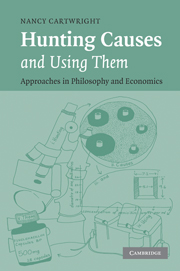
Dan Haybron’s pioneering work on positive psychology continues to be a huge influence. Watch out for his new forthcoming monograph, but for now enjoy this classic:
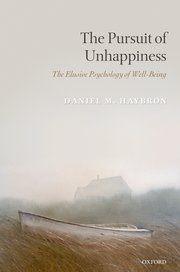
My other influence is Elizabeth Anderson, especially this article of hers: Anderson, Elizabeth. "Uses of value judgments in science: A general argument, with lessons from a case study of feminist research on divorce." Hypatia 19, no. 1 (2004): 1-24.

From very early on I’ve been striving to emulate the rigor and depth of philosophy of social science as practiced by Dan Hausman, especially here:
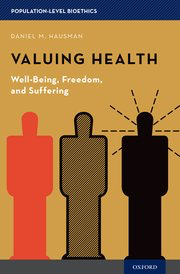
Hasok Chang’s work has been my model of combining history and philosophy of science, especially of measurement:
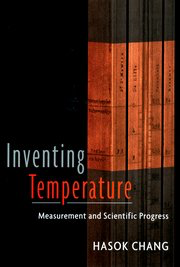

ABOUT THE INTERVIEWER
Richard Marshall is biding his time.
Buy his second book here or his first book here to keep him biding!
End Time series: the themes
Huw Price's Flickering Shadows series.
Steven DeLay's Finding meaning series
NEW: Joseph Mitterer's The Beyond of Philosophy serialised